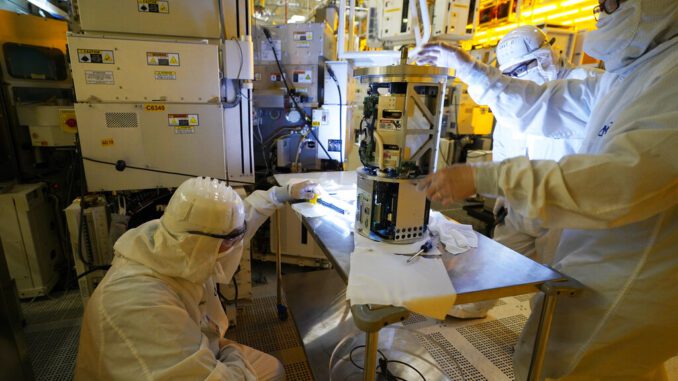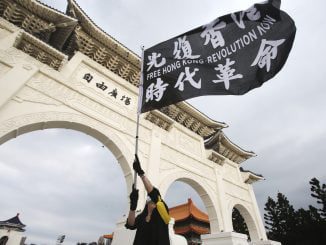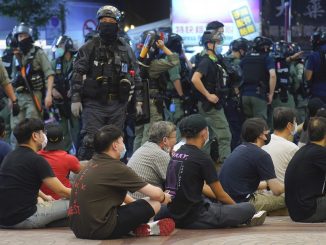
The disruptions caused by the pandemic have shed light on the importance of Taiwan’s semiconductor industry. Even more so, the war in Ukraine has put the potential implications of an invasion of Taiwan by China into focus. At this point, the role of TSMC (Taiwan Semiconductor Manufacturing Company Limited) and, in a broader sense, Taiwan’s tech industry on the global economy is indisputable.
Imagine a world with 90% of the world’s most advanced semiconductors in the hands of China. Or, just as bad, a drawn-out war where production is halted for months or longer. Is the world prepared for this? The potential impact of an invasion would be devastating on the United States economy as well as the rest of the global community.
Just as the war in Ukraine has had damaging ripple effects on the global food supply chain, the disruption to Taiwan’s semiconductor industry alone would negatively impact daily life for societies across the globe. From everyday household appliances and cars to LED light bulbs, cell phones, and computers, products in a plethora of industries could become scarce. These disruptions would put many countries’ communications and national security at risk. It would be the upheaval of the international system as we know it today.
China continues to make provocations at the US and Taiwan, exacerbating the tensions created by Russia’s invasion of Ukraine. The number of Chinese warplanes infringing on Taiwan’s Air Defense Identification Zone (ADIZ) has jumped at an alarming rate in the past two years, while China has ramped up its military exercises based on invasion scenarios. Rhetoric from the Chinese government has grown more aggressive towards the US. These tensions relay a test of not just economic and military strength but also of the strength of our values. Like Ukraine, Taiwan is tasked with showing the world that democracy, human rights, rule of law, and an open, free economy are still worth fighting for.
Ukraine’s ability to defend itself defied the expectations of Russia. Not only has Ukraine rallied its own citizens to its side, it has also rallied the international community into action. With the support of the international community, Ukraine has outlasted and outmaneuvered Russia these past five months, and the support of allies including the US and Taiwan has played a key role in helping Ukraine defend itself.
A broad range of support from allies is important for Taiwan as well. In turn, its semiconductor industry and strong democratic values make Taiwan a critical strategic partner for its allies, such as the US. Supporting Taiwan protects a crucial industry as well as solidifies the resolve of the democratic world.
The events of the past few years have spurred many in the international community to take more concrete action in acknowledging the necessity of maintaining peaceful relations in the region. In its joint communiqué issued on June 28, 2022, the 48th Group of Seven (G7) underscored the importance of peace and stability across the Taiwan Strait and encouraged the peaceful resolution of cross-strait issues.
Other examples in 2022 include announcements following the Japan-Australia Leaders’ Meeting, the US-Japan Summits, the EU-Japan Summit, and the US-Republic of Korea Leaders’ Summit, where the international community reiterated the importance of peace and stability across the Taiwan Strait.
Leaders have begun to take note of the importance Taiwan plays in their own country’s security interests. The late Abe Shinzo compared a Taiwanese emergency to a Japanese emergency, emphasizing the impact an attack on Taiwan would have on the Japan-US alliance. Chinese expansion poses a threat to all in the Indo-Pacific region. In addition to Taiwan, China has multiple ongoing disputes with its neighbors over tenuously held territories in the region, including disputes with Japan, South Korea, and the Philippines.
The Taiwanese government has been deeply appreciative of the growing recognition and support for Taiwan. As a responsible stakeholder in the global community, Taiwan is hoping to further integrate itself within the international system but has largely been barred from participation in major organizations.
In many organizations, China is able to throw around its political and economic weight to prevent Taiwan’s inclusion. For others, even the thought of angering China deters members from allowing Taiwan to participate. The IPEF is one such case. The IPEF, or Indo-Pacific Economic Framework for Prosperity, is an economic initiative between thirteen countries in the region, including the US, Japan, South Korea, and Australia. It is dedicated to bringing a fair and free economic system to the region yet leaves out a key economic leader in the region: Taiwan.
Regardless of these difficulties, Taiwan stands tall as a beacon of democracy in Asia. Despite increasing aggression from China and heightened tensions between the US and China, Taiwan continues to seek a peaceful resolution with China to create a free and open Indo-Pacific region. Safeguarding peace, stability, economic prosperity, and sustainable development throughout the region will continue to be a top priority for Taiwan, and it should be for the rest of the world, too.
Elliot Wang is Director-General, Taipei Economic and Cultural Office, Atlanta



